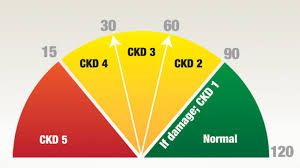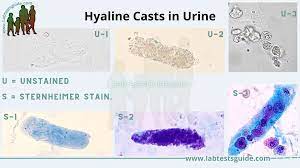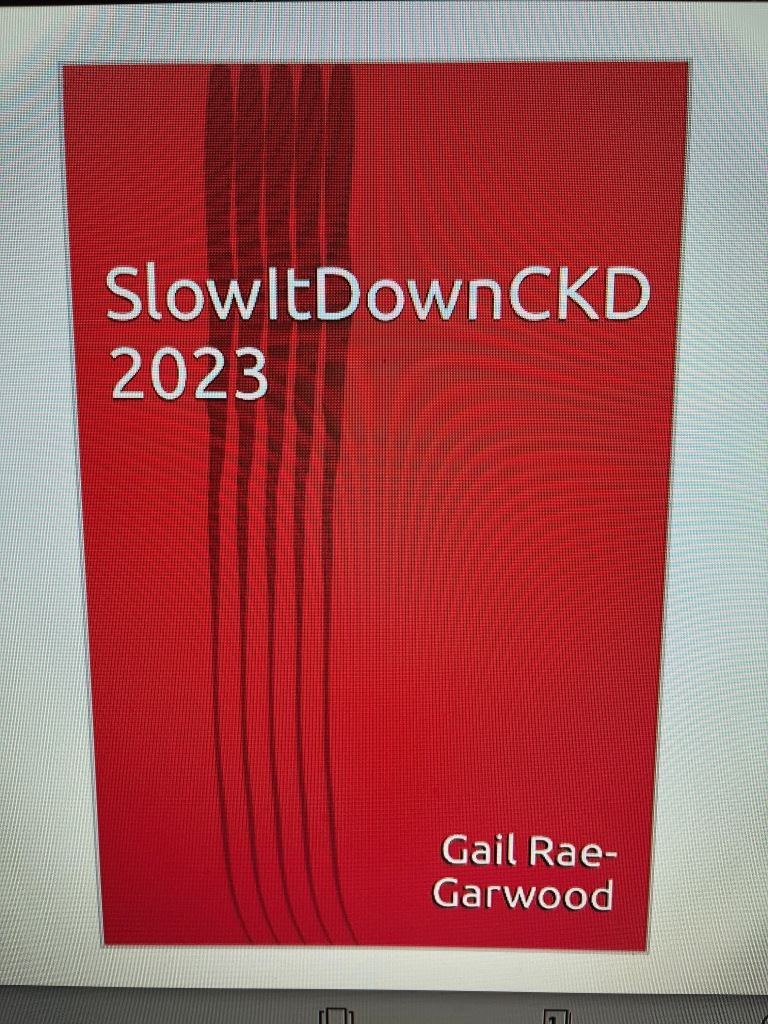Yes, Sir! No, Sir!
You probably know already, since I’ve mentioned it numerous times, my husband Bear is a veteran. As an older [not old] man, his eGFR has slowly lowered. It’s normal for that to happen. But it got me to thinking about what the Department of Defense’s current attitude toward the kidneys might be since I haven’t written about this in quite a few years.

My first attempt at finding out was to hit The Department of Defense’s Medical Standards for Military Service:
“i. Absence of one kidney, congenital or acquired. DoDI 6130.03-V1, March 30, 2018 Change 4, November 16, 2022 SECTION 6: DISQUALIFYING CONDITIONS 32
j. Asymmetry in size or function of kidneys, including, but not limited to, duplex kidney.
k. History of renal transplant.
l. Chronic or recurrent pyelonephritis or any other unspecified infections of the kidney.
m. History of polycystic kidney.
n. History of horseshoe kidney.
o. Hydronephrosis on most recent imaging not related to pregnancy.
p. History of acute nephritis.
q. History of chronic kidney disease of any type as evidenced by:

(1) Estimated glomerular filtration rate of less than 60 milliliters per minute per 1.73 square meter of body surface area for a period of 3 months or longer;
(2) Abnormal renal imaging;
(3) Cellular casts or active urine sediment; or
(4) Abnormal renal biopsy.
r. History of acute kidney injury requiring dialysis.
s. History of proteinuria with a protein-to-creatinine ratio greater than 0.2 in a random urine sample, more than 48 hours after strenuous activity.
t. Urolithiasis if any of the following apply:
(1) Current stone of 3 mm or greater.
(2) Current multiple stones of any size.
(3) History of symptomatic urolithiasis within the previous 12 months.
(4) History of nephrocalcinosis, bilateral renal calculi, or recurrent urolithiasis at any time.
(5) History of urolithiasis requiring a procedure.”
Wow, the very first disqualification is new since last I wrote about the Department of Defense and the kidneys. Since you can still live a healthy life with only one kidney, I wondered why this exclusion was added. Johns Hopkins answered my question. It seems you may develop the following if living with a solitary kidney:
- “High blood pressure
- Increased protein in the urine, or proteinuria
- Reduced filtering capacity measured by glomerular filtration rate (GFR): A reduced GFR, measured by a blood test, can occur in people with a single kidney. As long as these conditions are under control, they will probably not affect overall health dramatically, but regular monitoring is needed.”
I suspect it’s that ‘regular monitoring’ that is the sticking point.
There’s a term used in q.3. that you may not be acquainted with: Cellular casts [which actually mean I wasn’t familiar with it]. Healthline was helpful in delineating what they are:
“The type of urinary cast found in testing can indicate a condition that can help doctors confirm a diagnosis. For instance, casts and their common diagnoses include:
- Hyaline casts: Dehydration or chronic kidney disease.
- RBC casts: Inflammation of the kidney’s filters (glomerulonephritis)
- WBC casts: Kidney inflammation or infection.
- Bacterial casts: Infections.
- Fatty casts: Too much protein in the urine (nephrotic syndrome), lupus, lipoid nephrosis.
- Renal tubular epithelial casts: Damage to kidney tubes.
- Granular casts: Urinary retention, urinary tract infections, chronic kidney disease.
- Waxy casts: Urinary retention, advanced kidney disease.”
It looks like casts are self-explanatory. Although, I do wonder about WBC [white blood cell]. Couldn’t the infection be in some other part of your body?

Also notice q.1. Does that sound familiar? The definition of chronic kidney disease is:
“The Kidney Disease Outcomes Quality Initiative (KDOQI) of the National Kidney Foundation (NKF) established a definition and classification of CKD in 2002….The KDOQI and the international guideline group Kidney Disease Improving Global Outcomes (KDIGO) subsequently updated these guidelines….These guidelines have allowed better communication among physicians and have facilitated intervention at the different stages of the disease.
The guidelines define CKD as either kidney damage or a decreased glomerular filtration rate (GFR) of less than 60 mL/min/1.73 m….for at least 3 months. Whatever the underlying etiology, once the loss of nephrons and reduction of functional renal mass reaches a certain point, the remaining nephrons begin a process of irreversible sclerosis that leads to a progressive decline in the GFR….”
Thank you, Medscape for this definition. By the way, I added the bolding.
One more thing I couldn’t quite figure out. Why were those with a kidney transplant disqualified? I turned to the National Kidney Foundation since I thought I knew the answer, but didn’t want to give my non-doctor opinion:
“After the transplant, you will need to take anti-rejection medicines, also called immunosuppressants, for as long as your new kidney is working, which can have side effects. You will have a higher risk for infections and certain types of cancer.
Although most transplants are successful and last for many years, how long they last can vary from one person to the next. Depending on your age, many people will need more than one kidney transplant during a lifetime.”

Change of topic. This is extremely local, so those of you in Phoenix, Arizona, pay attention.
“PATH TO WELLNESS FREE HEALTH SCREENINGS
Saturday June 15th, 2024
We’re excited to bring Path to Wellness back to communities throughout Arizona.
Next Screening: Saturday, June 15 | 8:30-11:30 AM | Watts Family YMCA Maryvale- 3825 N 67th Ave, Phoenix, AZ 85040
—————————————————————————————————————-
Path to Wellness is a free community health screening program provided by the National Kidney Foundation of Arizona in collaboration with local health organizations. Screenings are held throughout the state of Arizona on a sponsored basis, and are open to the public.
Path to Wellness screenings provide free blood and urine testing, which is evaluated onsite using point-of-care testing devices to assess the risk of diabetes, heart and kidney diseases. Those screened are also presented with chronic disease management education, an overall health assessment (weight, blood pressure, etc.) and a one-on-one consultation with a physician.
For more information, call our main line at: (602) 840-1644. To volunteer for a Path to Wellness event, please contact Tiffany Pierson, Path to Wellness Program Coordinator at tiffanyp@azkidney.org OR sign up through the Volunteer Agreement
Interested in hosting a Path to Wellness in your community? Click here to find out more information.”
Until next week,
Keep living your life!
- Acute Kidney Injury
- Acute Nephritis
- AKI
- Department of Defense
- Duplex
- eGFR
- High Blood Pressure
- Horseshoe Kidney
- Hydronephrosis
- Hypertension
- Infection
- KDIGO
- kidney stones
- Kidneys
- Polycystic Kidney Disease
- Proteinuria
- Pyelonephritis
- Transplant Living
- Uncategorized
- urinalysis
- Urine
- urine test
on June 3, 2024 at 11:20 am
Leave a Comment
Tags: SlowItDownCKD 2012, SlowItDownCKD 2013, SlowItDownCKD 2014, SlowItDownCKD 2015, SlowItDownCKD 2016, SlowItDownCKD 2017, SlowItDownCKD 2018, SlowItDownCKD 2019, SlowItDownCKD 2020, SlowItDownCKD 2021, SlowItDownCKD 2022, SlowItDownCKD 2023, TAGS: SLOWITDOWNCKD 2011, What Is It and How Did I Get It? Early Stage Chronic Kidney Disease
![]()
The URI to TrackBack this entry is: https://gailraegarwood.wordpress.com/2024/06/03/yes-sir-no-sir/trackback/
- The Renal Warrior Project. Join Now
- Source: https://gailraegarwood.wordpress.com/2024/06/03/yes-sir-no-sir/
